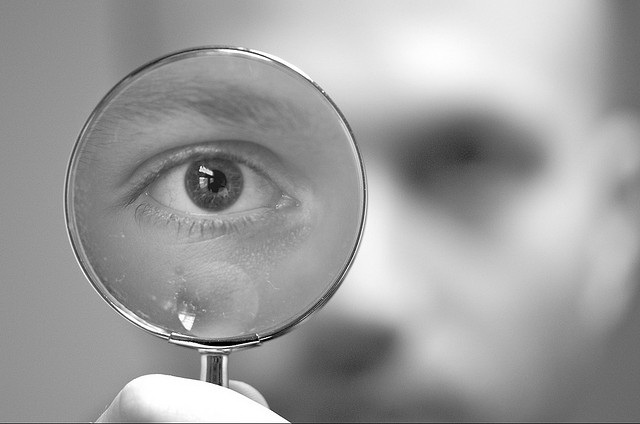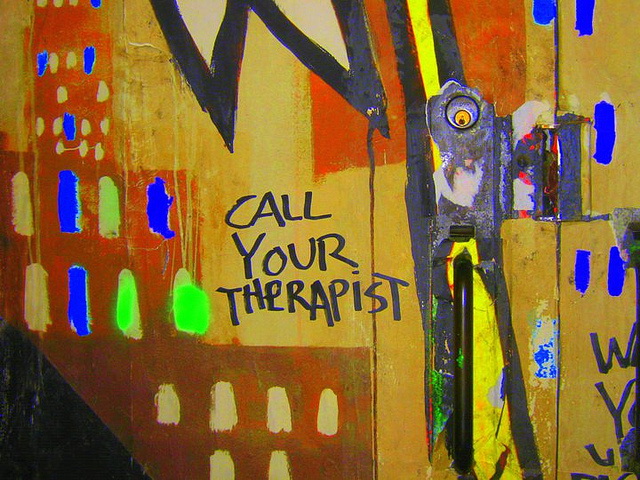Mindfulness – A Valid Psychological Tool?

In the doublespeak marketing world of Madison Avenue it seems that every new product introduced share a common identity. Each one is “New and Improved.” Which, if you think it raises about the question, how can something new be improved?
And so it goes with mindfulness. A new and improved approach in the world of psychology or a long-hidden gem adapted to today’s clinical world? Let’s take a look.
Origins of Mindfulness
Mindfulness fits within the family of meditative approaches. Here the mind is trained to turn away from the distractions of everyday life and is focused on a single point of reference. Rich in tradition, mindfulness offers its users a method of synchronizing their internal world with reality. Words like harmony, well-being, and balanced come to mind.
With its origins many centuries ago in the Eastern ways of Buddhism, mindfulness has come into its own in the western world of psychology in the last quarter of the 20th century. Even now, it is primarily used as one of several techniques available to the client in therapy.
Among those who recommend its use are medical professionals, religious and secular spiritualists, personal coaches, and psychologists / psychotherapists. It comes with high marks for its use. Here, it hangs with the others of its ilk, like:
- Transcendental Meditation
- Guided visualization
- Zazen
Of these meditative approaches mindfulness may well be the most popular of meditations practiced in the western world today. Most known mindful meditation is “Vipassana” and with its emphasis on being present in the moment, the person meditating actually learns how to see their mind at work.
An advantage of mindfulness is that over time and through practice it becomes an active participant in one’s life, present when needed. I refer to it as an early warning system wherein it can alert you to events, situations, even people that may trigger a negative reaction from you.
For some, this description has a very Pollyannaish feel to it. In its purest form it certainly is not the product of the scientific community. Among the premises of scientific study done within the western way, to validate mindfulness requires independent review, study, and testing. To date the amount of empirical study completed on mindfulness remains limited.
Therapy is generally defined as treatment intended to relieve or heal a psychological disorder. There are any number of methodologies or combinations of clinical approaches used. In and of itself and for the reasons stated above, mindfulness is not broadly considered a form of psychotherapy. This article will argue that while this may be true, it does deserve consideration as such.
Is Group Therapy For You?

Group or individual therapy, which is best? A loaded question, but one that deserves our full attention. Whichever form your psychotherapy takes this factor, group or individual treatment has inherent advantages and limitations. In certain situations, there are specific recommendations regarding which form of treatment is used. In other cases it may be a mutually decided upon choice between your therapist and you.
Why Group Therapy?
Although group therapy often remains an option, the advantages of group therapy far outweigh those opposing it. Let’s look at some of the conditions where the choice of group therapy may be strongly indicated:
- Educational/learning activities
- Medication and life skills information
- If the client has relationship issues
- Where the support of other clients with similar issue can be beneficial.
- Certain personality disorders, psychoses, or related conditions.
- An overlooked use for group therapy is in the treatment of addictions and some forms of PTSD
When considering which option is best it may surprise you to learn that there are many nuances present during the processes of group psychotherapy. By all appearances everything is pretty straight forward. There’s the therapist, clients, a meeting area, and an agenda. In the background when recommending group therapy every effort is made to insure that two criteria are met:
- Suitability of the client with the group
- Clearly identified goals and benefits
How to evaluate if you need psychotherapy?

Therapy: a badge of honor or a badge of shame? According to 2010 statistics from the Substance Abuse and Mental Health Services Administration in the United States there is an estimated 30 million adults diagnosed with mentally disorders. You might think that receiving therapy would be a priority. Not so, for many the question, do I need therapy remains a highly emotional topic.
There are several reasons for this reluctance to participate in therapy, among them are:
- Social stigma: In the US and Canada being labeled as mentally ill carries a social stigma. This stigma is the result of the public perception that being diagnosed and treated for a mental illness somehow makes the patient crazy.
- Cost: Yes, therapy can be expensive. The cost will depend on where the treatment is provided. A thorough check on local resources often can result in treatment options at very reasonable cost
- Availability: While mental health treatment is widely available there are some locales where services are limited or even non-existent.
- Knowing how to access service: Obtaining mental health treatment can be a challenge. Many questions arise like where do you start your search, what is available, how can you be sure that your choice of a service provider is the right one? Many communities have non-profit agencies that offer information and referrals for mental health treatment.
- A lack of knowledge about the process of therapy.
Certainly there are others reasons as well, including the focus this article, the question, do I need therapy? While a seemingly simple question, there are several underlying reasons why this question comes up. The main one is denial. Denial is our defense mechanism and it is often associated with comments like:
“They have always acted that way,”
“They will get over it,”
Just give them some time.”
“That’s just who they are.”
Everyone experiences times of sadness, stress, conflict, or any number of other troubling events. This is normal and in and of itself does not constitute a reason to seek therapy. It is when these events overwhelm you, become possessive of your life, and lead to poor decision making that therapy must be considered as an option.
Yet, there are those people who seem to have a higher tolerance for dealing with negative life events than others. Most of us know someone whose life appears to be lived on the edge.
This article is not intended to convince you either way, but to lay out a straightforward approach to honestly answering that question.
When Is it Time to Stop Therapy?

We have all heard that saying, “Getting too much of a good thing.” If true, at what point do you get too much of something, even a good thing? Kind of a loaded question don’t you think? Can you ever be loved too much? For the true chocoholic the idea of having too much chocolate doesn’t make a lot of sense. Yet, common sense will tell us that we should strive for moderation in all things.
The over-indulgence or gluttony is one of the seven major sins. Yet, most of us do it from time to time. Especially when it comes to addictions. The same can be true for a long term psychotherapy. It can become an addictive process for many. Think about it, for at least one hour a week you are the center of attention. There is someone there who nurtures you. Your opinions matter. There sits someone who shows attention and care, what’s there not to like? The same dynamics when addicts can no longer exists without drugs or alcohol applies to psychotherapy. Clients become dependent on a psychotherapist and unwilling to discontinue psychotherapy sessions. They still don’t believe in their own strengths and many afraid that they will get back where they started without therapist’s constant support. Yet, it is essential for therapy to end at a right time.
But when is the right time? When is it time to stop the therapy and rely on your own strengths? This article will help you evaluate your progress in therapy and make decision on when it is a right time to quit therapy.
What Happens In a Therapy Session?

Drum roll please! Congratulations, you have decided that the time to change your life has arrived. No more low self-esteem, problem relationships, or feeling out of control. You have made the decision to take charge of your life, to shake things up, to change. You are going to begin therapy.
You have found a psychotherapist, psyched yourself up, and are ready to begin, or so you think. Butterflies begin to set in. Questions arise. Is this something you really want to do?
Are you really ready to open up your life up to someone you don’t even know? What will they think of you? What if therapy doesn’t help? It’s all new and maybe even a bit embarrassing. You may ask yourself, “What have I done?”
Take a deep breath and relax, as you prepare yourself for your first time in psychotherapy it is quite normal to wonder what the experience will be like. And there are plenty of examples to draw upon. From the comical to the serious, we’ve all heard or seen depictions of characters being involved in therapy. It is a favorite topic of many stand-up comedians, interview shows, and other venues. How close to reality are they? Let’s take a look.
How to Choose a Psychotherapist

There was a time when the lonely rancher would find a life partner using a mail order bride service. Sometimes it worked out, sometimes not. Today few of us would seek out a partner using this method. Yet, due to a stigma associated with mental health, we rarely ask friends or acquaintances for recommendations, instead, like that lonely rancher, we are turning to the internet, the modern version of mail order service. Ironically, according to recent research findings, many clients choose therapists primarily based on attractiveness and trustworthiness of their faces.
The world of psychotherapy can often seem mysterious. You have to choose a person to share most intimate details of your life, details that you probably don’t share with your partner, friends, and relatives. Can you trust a therapist? Absolutely! All licensed psychotherapists and psychologists are bound by professional and legal regulations and everything you share is strictly confidential. And let me assure you that in almost every instance you will encounter genuinely caring people whose focus is helping you become a better person.
Yet, when choosing a therapist you should make sure that you are absolutely comfortable with this person. The process of psychotherapy creates a unique relationship between yourself and your psychotherapist. A relationship that is sometimes identified as a therapeutic relationship.
Again, you may confide in your psychotherapist things you would not tell even your best friend. Hurtful, even toxic events and people that have left an indelible mark on your life. What kind of person do you want to make this journey of therapy with? This is what we will explore in this article.
Redefining ‘Crazy’ as a stereotype for Mental Disorders

Even though we live in a world that is becoming more accepting of our differences there remains pockets of misunderstanding. Let’s take the area of mental illness as an example. Still today “crazy” remains more than just a word. For many, it is an umbrella under which people with all forms of mental illness lie.
How often do we hear others refer to the odd behavior of someone as they’re being crazy? This inference carries over into our everyday lives as synonymous with someone being mentally ill. It is reminiscent of the parable of “Cast the first stone.” Judgments are often hastily made when in fact we may be judging ourselves.
While concrete data are difficult to find, one report from the Congressional Research Service issued in February of 2014 indicates that somewhere between 30 and 40% of the adult population in the U.S. have a diagnosable mental illness. These figures suggest that even among those who continue to refer to others as crazy may also be a part of the same group.
In this article we will make an effort to clear the air about the stereotypes we use. This will include what constitutes a mental disorder, the spectrum of mental conditions, and the treatment of mental illness. An important premise in understanding mental conditions is their inclusion into the overall categories of medical conditions.
We will be using four sources. These are current data, experience, the Diagnostic and Statistical Manual of Mental Disorders, fifth edition (DSM-5), and the International Classification of Diseases – 9 (ICD). The ICD-9 serves as the guide for all medical conditions.
What is “Crazy?”
Odd, weird, different, crazy are some of the terms used to describe another when how they act is outside the norms we have come to expect of others. Sometimes these behaviors may seem eccentric, perhaps a bit comical. In other instances, it may simply be that there is something about a person, some sinister element that sets of internal alarms.
We all have experienced encountering someone who talks to themselves, encounters their environment with suspicion, has unusual muscle ticks, or makes strange sounds. In other cases it may be someone we know a friend or relative whose odd behaviors have kept them isolated from the “normal” world.
Mental illness is a vast category of symptoms and behaviors serious enough so as to impair the persons functioning within the norms of society. In some instances, these impairments may be well hidden and compensated for. For many other mentally ill people their symptoms and behaviors can range from mild to severe
While we may not know what the cause of the odd behaviors is, intuitively we know that there is something different going on.
The Critical Role of Nutrients in Mental Health

by William Walsh, Ph.D., Senior Scientist, Walsh Research Institute
Each of us has innate biochemical factors which influence mental health, immune function, allergic tendencies, and more. Scientists tell us that the number of different genetic combinations possible in a child from the same two parents exceeds forty-two million. It’s interesting to note that we do not possess a combination of characteristics from our parents, but instead have a diverse collection of characteristics from many ancestors on both sides of the family.
Except for identical twins, each human being has unique biochemistry resulting in quite diverse nutritional needs. Shakespeare was correct when he wrote, “One man’s meat is another man’s poison.” For example, some of us are genetically suited for a vegetable-based diet and others are not. Some people can satisfy their nutritional needs by diet alone and others must have nutritional supplements to overcome genetic aberrations.
Because of genetic differences in the way our bodies process foods, most of us are quite deficient in certain nutrients and overloaded in others. Even with an ideal diet, most of us have certain nutrients that are at very low levels causing us to require many times the RDA (Recommended Daily Allowance) to achieve a healthy balance.
The nutrients in overload must be carefully avoided in vitamin supplements or serious health problems can develop. After studying the biochemistry of 10,000 persons, I’ve learned that the greatest mischief is usually caused by nutrients that are stored in excessive amounts, rather than those at depleted levels. The most common nutrients that are stored in overload include copper, iron, folic acid, calcium, methionine1, manganese, choline2, and omega-6 fatty acids3. Of course, these same nutrients may be in deficiency in other persons. [Note: Some technical terms are explained at the end of this article.]
I am amused by supplement manufacturers who attempt to develop the ideal combination of vitamins, minerals and amino acids for the general population. This is a bit like trying to determine the ideal shoe size for the population. The truth is that multiple vitamins and minerals are too indiscriminate and may do as much harm as good.
Each of us should ask the question, “Who am I nutritionally?” The answer to this question is important for all, but may be especially critical for persons with mental health problems.







